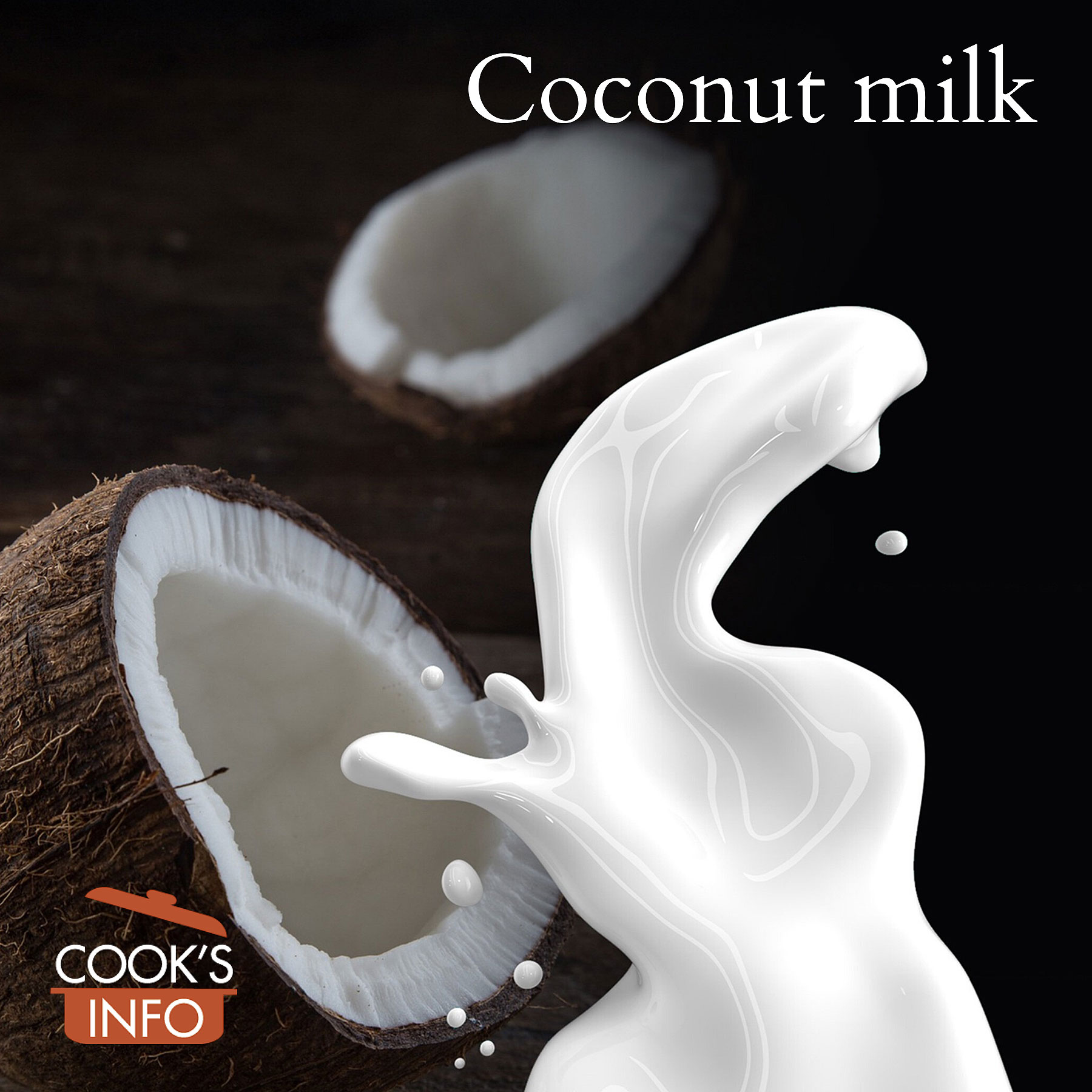
Coconut milk. Lisa Redfern / Pixabay.com / 2016 / CC0 1.0
Coconut milk is a liquid made from water and coconut flesh.
It is not, as most people might guess, from the water or juice drained out of a coconut.
Instead, coconut milk is made by infusing water with grated coconut, just as almond milk is made by soaking ground almonds in water. It looks a lot like cow’s milk, though of course it tastes and acts quite differently, and as a different nutritional profile.
Coconut milk has a naturally sweet flavour from the coconut itself.
It comes in cans, cartons, frozen or powdered. If the coconut solids and the water separate, just shake or stir.
Thai and Sri Lankan curries almost always use some coconut milk.
Cooking Tips
If coconut milk has been stored a long time, it can become grainy or separate. If it looks this way, just whiz in a blender or whisk for a few seconds.
It can curdle quite easily when cooking with it, so stir constantly.
Substitutes
To make coconut milk, grate fresh coconut flesh into a bowl or pot. Just cover with boiling water from a kettle. Let stand until cool, then strain through a sieve or muslin. You can repeat this process to make more coconut milk; the second round will in fact give you a thicker coconut milk.
Keeping powdered coconut milk on hand allows you to mix up just the amounts required as needed.
Nutrition
Nutritional information will vary wildly between brands because this is a manufactured product. Usually about 17% fat, though low-fat versions are available. Coconut powders also make up into a lower-fat version.
|
Amount
|
||
| Calories |
50
|
|
| Fat |
5 g
|
|
| Saturated |
5 g
|
|
| Cholesterol |
0 mg
|
|
| Carbohydrate |
1 g
|
|
| Fibre |
0 g
|
|
| Sugars |
0 g
|
|
| Protein |
1 g
|
|
Equivalents
Whiz in a blender 1 cup (2 ½ oz / 70 g) unsweetened dried coconut with 1 cup (8 oz / 250 ml) of boiling water, let cool and strain;
- 1 packet of instant coconut powder with 13 oz (400 ml) of lukewarm water;
- 1 ½ oz (50 g) of regular coconut powder with 8 ½ oz (250 ml) of hot water.
Storage Hints
You can store unopened cans or cartons on the shelf for up to 2 years. Once opened, refrigerate and use within 4 days.

